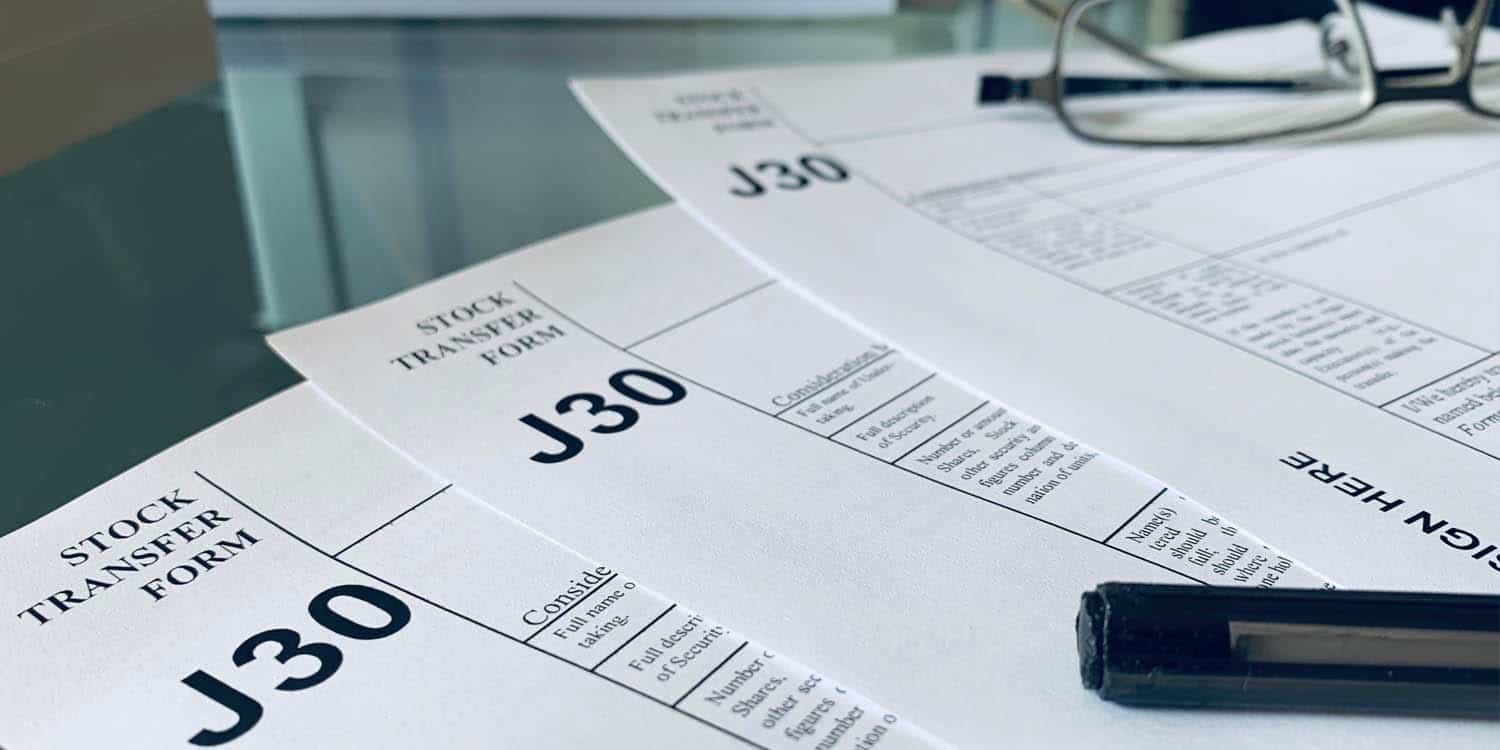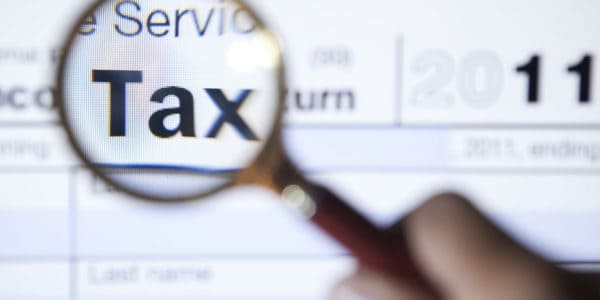Stock transfer forms are documents used to transfer shares in UK companies limited by shares. These forms record the details of share transfers, including the names of the buyers and sellers, the number and types of shares, and how much is being paid for them (the ‘consideration’).
There are two types of stock transfer forms:
- form J30, which is used for the transfer of fully paid shares
- form J10, which is used to transfer shares that are unpaid or partly paid
The most common type of share transfer is for fully paid shares using form J30.
Key takeaways
- Use form J30 for transferring fully paid shares and form J10 for unpaid or partly paid shares.
- Notify Companies House of share transfers in the next annual confirmation statement, but keep stock transfer forms internally.
- Pay stamp duty on share transfers exceeding £1,000, submitting the form to HMRC within 30 days for stamping.
Do I need to notify Companies House of share transfers?
Companies House should be informed of any share transfers on the next annual confirmation statement (Companies House form CS01). Quality Company Formations provides a Confirmation Statement Service at a cost of £59.99 plus VAT. This service can also be purchased by existing customers from the Shop area within our Online Customer Portal.
There is no need to provide Companies House with copies of stock transfer forms. However, the director should update the company’s statutory register of shareholders to record the details of any share transfers. Copies of stock transfer forms, along with any resolutions and copies of share certificates relating to transfers, must also be kept with the company’s statutory registers.
Do I need to inform HMRC and pay stamp duty?
Reporting share transfers and paying stamp duty to HMRC depends entirely on the circumstances of the particular transfer:
- Where share transfers have a sale value, or ‘chargeable consideration’, of £1,000 or less, there is no requirement to notify HMRC or pay any stamp duty. This includes shares that are given for ‘nil’ consideration (i.e., gifted to someone). However, Certificate 1 on the reverse of the stock transfer form must be completed and signed.
- Where share transfers are classified as exempt of stamp duty – e.g., shares that are left to someone in a will – there is no need to notify HMRC of the transfer. However, Certificate 2 on the reverse of the stock transfer form must be completed and signed.
- If the share transfer value exceeds £1,000 and is not otherwise exempt from stamp duty, the transferee (new shareholder) will have to pay stamp duty to HMRC at the rate of 0.5% of the sale value. In this circumstance, the completed and signed stock transfer form should be delivered to HMRC’s stamp duty office (in Birmingham) for stamping within 30 days of the date of the transfer. The form should be accompanied by the existing share certificate and a covering letter.
Stamp duty on shares can be paid to HMRC by BACS transfer, online, or by cheque. If payment is made online or by BACS transfer, you should provide the payment reference and the amount and date paid.
HMRC takes around 5 to 10 days to process and return stamped stock transfer forms and share certificates. When they are returned to your registered office, you should store them with your company records, issue new share certificates to the new shareholders, and update your statutory register of members accordingly,
Restrictions
In some cases, there may be restrictions on the transfer of shares. Therefore, it is essential to check the company’s articles of association and shareholders’ agreement (if one exists) before allowing the process to begin. Such restrictions may include pre-emption rights, buy-back options, and obstacles that prohibit directors from authorising share transfers.










Join The Discussion